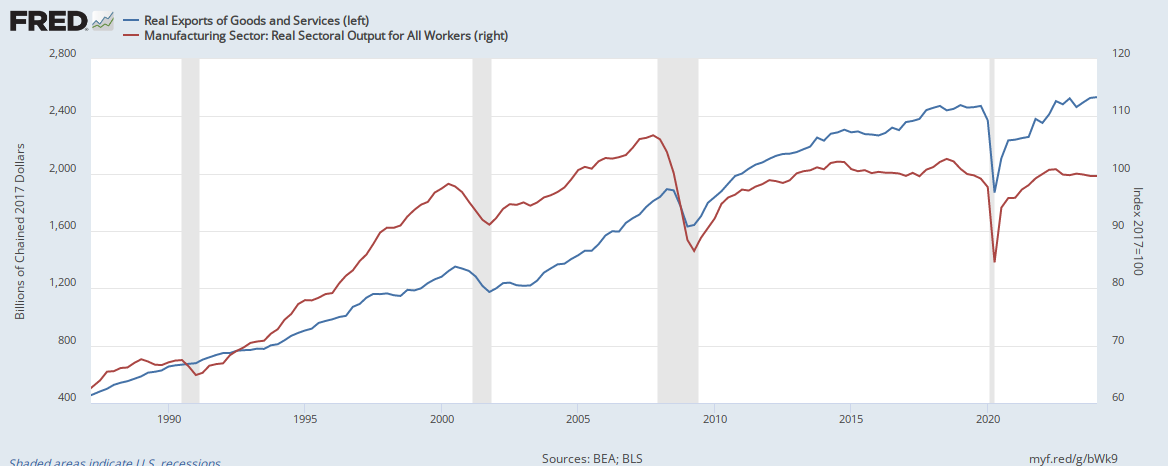There are trade partners that have far more strict labor and environmental regulations... are we similarly expected to abandon our sovereignty to appease our trade partners? Suppose every other developed nation says they will no longer trade with us unless we implement universal health care? It's a bull**** argument, and lacks economic logic.
You simultaneously ignore automation. As i have stated multiple times, the jobs are not coming back... any production that is driven back to the U.S. due to tax policy will be accompanied by automation, and will come with (your name) an opportunity cost!
Nope!
The most you can claim is that wages have not kept up with productivity.
Sure. Every day they are becoming more and more automated. Not just low-skill jobs... but even instances where a highly skilled person is being replaced, e.g. web design, financial planning, accounting, etc.... It's not going away, and tariffs do not address this reality.
I talk about employment a great deal. Automation is reducing the need for labor, and nothing you have stated negates this fact. There has become a saturation point with respect to the marginal utility of labor, such that, even as technology frees humans to do other tasks, there are less and less avenues for displaced labor to flow. Compound the fact that the marginal utility of leisure operates inversely with gains to technology.
Face it... we are a capitalist dominated economy. Short term profitability is the be-all/end-all driver of this system. Eventually, automation will reach a similar saturation point where further implementation leads to diminishing marginal return of profit, as automation cannibilizes the consumers ability to purchase. This can be remedied: Redistribution of profits will ensure capitalism's survival, A.K.A. the basic income guarantee.

